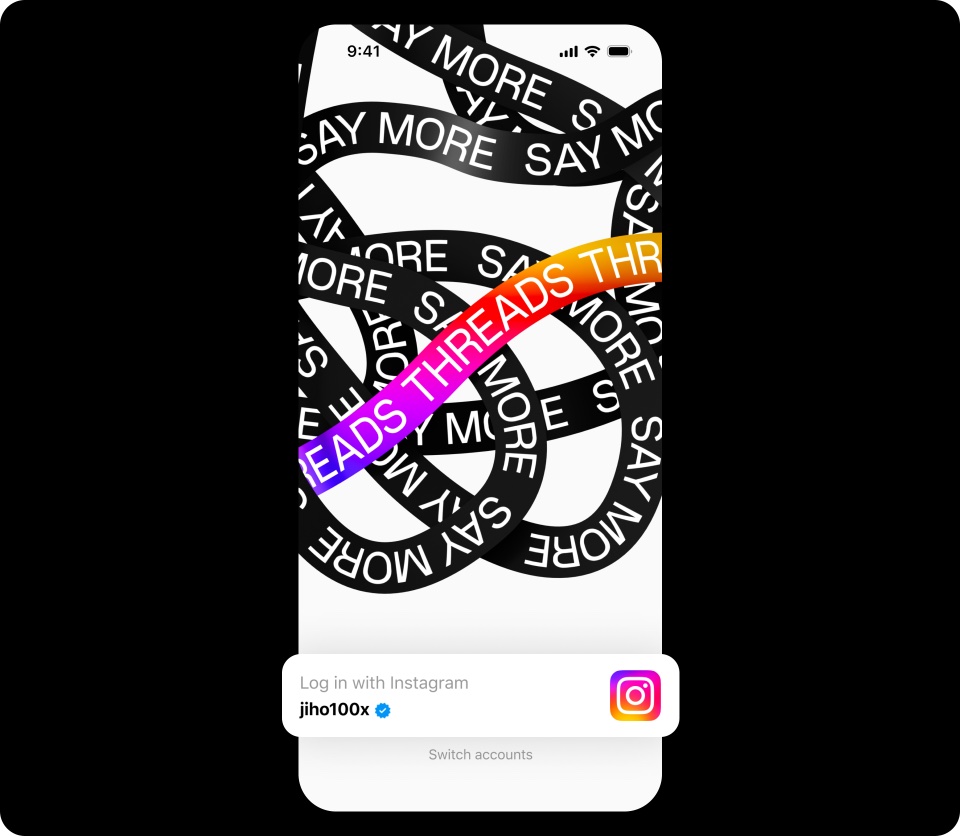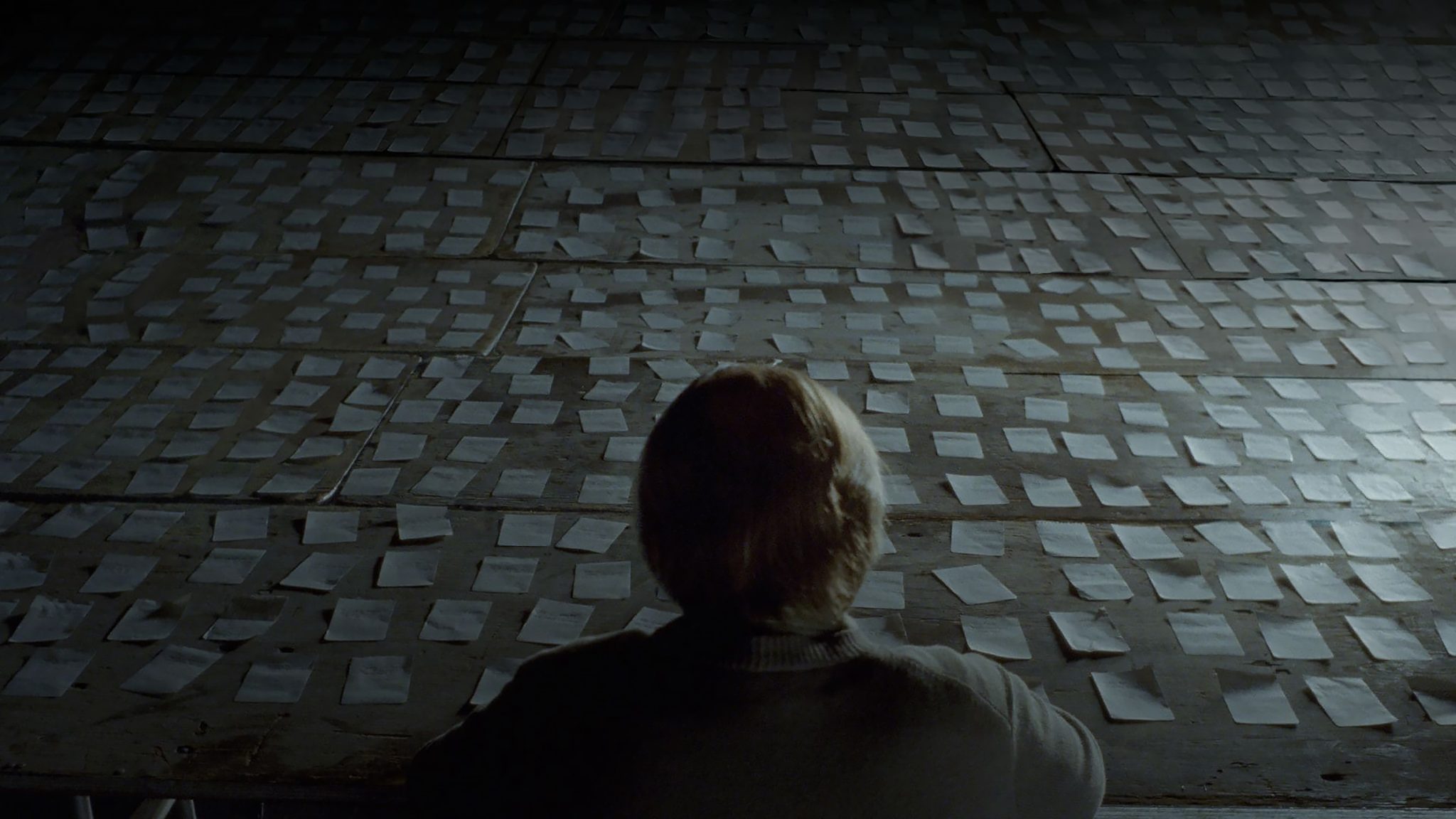The much-garlanded new site presents digital life as an institutionalised nonplace, where conversation is meant to be frictionless and circulate as an end in itself
On 5 July, Meta launched Threads, Instagram’s Twitter deepfake, and millions of Instagram users duly installed it, porting over their existing credentials and no doubt overtaxed attention spans to yet another feed. Why they did this remains unclear, given that Twitter and a host of other copycat microblogging apps already exist. Did they see Threads advertised on their Instagram and think it was a fashion app? Did the endless amount of credulous coverage that Threads garnered make it seem essential? Do people simply like claiming usernames and followers on new platforms?
Threads has typically been described as a potential ‘Twitter killer’, as if that weren’t already Elon Musk, whose bungling attempts to make the relatively unpopular platform he impulsively purchased nine months ago into something profitable and ‘unwoke’ has irritated many of its core users. Instagram CEO Adam Mosseri seemed to want to disavow this aim, though, claiming that the point of Threads ‘isn’t to replace Twitter’ but to ‘create a public square for communities on Instagram that never really embraced Twitter and for communities on Twitter (and other platforms) that are interested in a less angry place for conversations’. In practice, this meant allowing brands, celebrities and influencers to prepopulate the site with enough no-stakes content to make the site seem vital while being no more than redundant. Some analysts have called this a play for the advertising dollars fleeing Twitter, in which case a ‘friendlier’ place for conversation just means one that would better cater to brand-safety concerns.
But brand safety collides with the overriding corporate goal of achieving universal scale. From Meta’s point of view, Twitter’s meagre user base indicates an underserved market in its particular media format. CEO Mark Zuckerberg imagines that a Twitter-like service should have just as many users as Facebook, Instagram or Whatsapp: ‘I think there should be a public conversations app with 1 billion+ people on it’, he wrote on Threads, having apparently learned nothing from Facebook’s history of scaling up indiscriminately and facilitating violence among the users it recklessly dumped into a shared discourse space. ‘Twitter has had the opportunity to do this but hasn’t nailed it’, he continued. ‘Hopefully we will.’ White nationalists, religious bigots and ethnic cleansers of various stripes probably hope so too.
To attract the billion users that have already rejected Twitter to an otherwise identical platform means reconceiving what a microblogging platform is for. Meta purports to believe that deemphasising news and politics on Threads will deter conflict without negating the whole point of engaging with a real-time short-form feed. But for most Twitter users, conflict on the site is not a flaw. They aren’t there to be ‘friendly’, as though that were the supreme aim of discourse, but to try to wield power. They are there to make news or shape it, to establish their authority over certain domains and defend that turf. Threads, by contrast, seeks complacent users who accept the idea that ‘conversation’ is the opposite of conflict and is ultimately no different from commerce. Accordingly, Threads has already selected its powerbrokers and granted them early access, while forcing on new users a fully algorithmic feed that positions them as consumers rather than speakers. On Threads, your primary intercourse is with an algorithm, just as it is on TikTok, and the point is not to incite your autonomous agency as a speaking subject but to keep you ‘engaged’ with a personally customised slate of entertainment.

And if you insist on speaking, it is not as if a billion users will be listening. Meta’s executives talk as though they were out to realise the (impossible) dream of a public sphere that could accommodate everyone and remove all the differences between people, brands, institutions, corporations, alt accounts, bots and so on – a totalising context (or metaverse, if you will) in which any conversation partners could readily hook up and be friendly to each other. But it’s doubtful that many ordinary users would want to be forced into such homogeneity, or would have anything left to say were they to conform to the expectations of such an institutionalised nonplace, where conversation is meant to be frictionless and circulate as an end in itself. Since its ballyhooed launch, Threads has seen a 70 percent drop in daily active users and a similar drop in time spent on the app.
One could readily imagine that Meta’s ploy with Threads is to create another catch basin for text to augment the training data necessary for its ongoing development of large language models. AI model training has shown how valuable such data in aggregate can be, no matter how mundane or inconsequential it may seem in context. Even if Threads folded tomorrow, Meta would still have acquired millions more interactions to run through the algorithmic wringer.
Likewise, even if Threads never becomes ‘culturally relevant’, as Mosseri claims to hope for in this interview, it can still affect culture by undermining the idea of relevance itself, furthering the sabotage already effected by sorting algorithms. Rather than make meaningful change in the world, one can now remain ‘relevant’ by keeping up with trending topics, main characters and memes.
Whenever a doctored image or piece of disinformation gains any traction, the damage is often said to be less in people thinking those specific fakes are real than in their coming to question the basis for the entire edifice of reality. Something similar applies to Threads. It is doubtful that it will replace Twitter, have much of a lasting impact on its metrics, or generate any discussion that has any pertinence to anything happening outside the app. It almost seems like fake news that any Threads users actually exist. But simply by being a well-publicised version of what Twitter is believed to be, Threads undermines the potential of what it might have been – and intermittently was: a place where relevance was about power that could be accessed by a far broader range of people than earlier forms of media permitted. If Threads persuades a broad audience that microblogging is nothing more than text-driven TikTok or Instagram, it will have succeeded in trivialising the idea of public conversation, even if no one bothers to use it.
Rob Horning is a New York-based writer on art and technology. He is the executive editor of The New Inquiry and a former editor of Real Life
